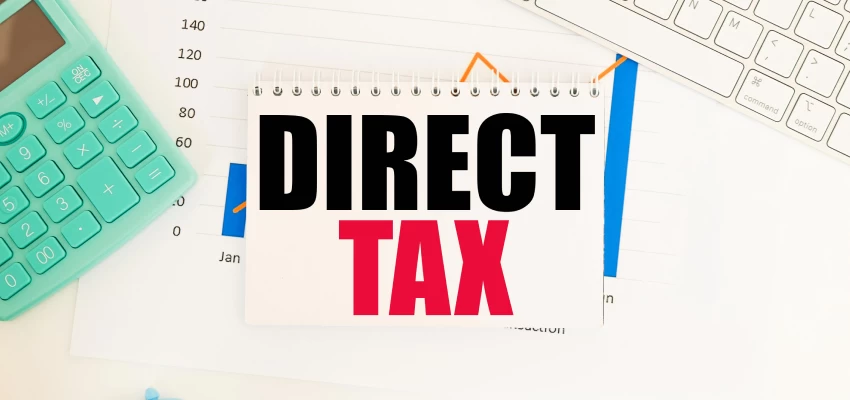Introduction
All along there has been a long-drawn litigation between the assessees and the Department on whether goodwill arising out of a business purchase or a business combination is eligible for depreciation under Section 32 of the Income Tax Act, 1961 (‘IT Act’).
Section 32 of the IT Act allows depreciation for both tangible and intangible assets which are owned, wholly or partly, by the assessee and used for the purposes of the business or profession. Explanation 3 to Section 32(1) provides that for the purposes of Section 32(1) ‘assets’ shall mean:
- Tangible assets, being buildings, machinery, plant or furniture;
- Intangible assets, being know-how, patents, copyrights, trademarks, licenses, franchises or any other business or commercial rights of similar nature.
Further, it may also be relevant to note that the term ‘block of assets’ under Section 2(11) of the IT Act has also been given the same meaning as mentioned in Explanation 3 to Section 32(1). However, the term ‘Goodwill’ was specifically not included in both the definitions.
In spite of ‘Goodwill’ not being included in the definition of ‘assets’ or ‘block of assets’, the assessees have been claiming depreciation on the acquired goodwill by relying on the Supreme Court decision of CIT v. Smifs Securities Ltd.[1] The issue before the Supreme Court in the said case was whether ‘Goodwill’ is an asset under Explanation 3(b) to Section 32(1) of the IT Act. The Apex Court held that a reading of the words ‘any other business or commercial rights of similar nature’ in clause (b) of Explanation 3 indicates that goodwill would fall under that expression by applying the principle of ejusdem generis. Therefore, the Apex Court held that goodwill is an asset under Explanation 3(b) to Section 32(1) of the IT Act and, thus, it is eligible for depreciation under Section 32(1) of the IT Act. The decision was followed by various Tribunals.[2]
After about 8 long years, the Finance Bill, 2021 has proposed substantial amendments w.e.f. 1 April 2021, which might have the effect of undoing the benefit derived by the assessees based on the above decision in terms of claiming depreciation on goodwill.
Amendments proposed by the Finance Bill, 2021
The Finance Bill 2021 has proposed to amend Section 2(11) of the IT Act to exclude goodwill of a business or profession from the ‘block of assets’ and also proposes to amend clause (ii) to Section 32(1) to provide that ‘goodwill of a business or profession’ shall not be eligible for depreciation. Further, an amendment has also been proposed to the definition of ‘assets’ under Explanation 3 to Section 32(1) that ‘goodwill of a business or profession’ shall not be treated as an ‘intangible asset’ for the purposes of Section 32(1) of the IT Act.
Necessary consequential amendments have also been made to Section 50 of the IT Act wherein the CBDT may prescribe a manner to determine the written down value (‘WDV’) of the block of asset and short-term capital gains. Further, necessary amendments have also been made to Section 55 of the IT Act w.r.t. calculating the cost of acquisition.
The reasoning given in the Memorandum explaining the Finance Bill, 2021 for excluding goodwill from the ambit of intangible assets is that the actual calculation of depreciation of goodwill is required to be carried out in accordance with various other provision of the IT Act[3]. Once those provisions are applied, in some situations (like that of business re-organization) there could be no depreciation on account of actual cost being zero and the WDV of that asset in the hands of the predecessor/amalgamating company being zero. It is further stated that goodwill, in general, is not a depreciable asset and it depends upon how the business runs, goodwill may see appreciation and in the alternative no depreciation to its value. Hence, for the said reasons assessees have been barred from claiming depreciation on goodwill.
Some interesting issues
Applicability of proposed amendments to business re-organizations concluded prior to 1 April 2021 and future business re-organizations
The question that arises is whether an assessee already claiming depreciation for a business re-organization done prior to FY 2020-21 be able to claim depreciation on goodwill from FY 2020-21. Let us take an example, ‘A’ enters into a scheme of amalgamation with ‘B’ in 2017. Through the amalgamation, ‘A’ acquires the business/assets of ‘B’ which also includes goodwill. ‘A’ all along from 2017 has been claiming depreciation on the goodwill. The question that needs to be answered is whether ‘A’ can still continue to claim depreciation of the goodwill from FY 2020-21.
Keeping in mind that an amendment has been made to the definition of ‘Block of assets’ to exclude ‘Goodwill’ per se from its ambit, it would be difficult for the assessees to claim depreciation on goodwill even though the amalgamation had taken place prior to FY 2021. In other words, going forward, the assessees would not be able to claim depreciation on goodwill even if they were claiming it prior to FY 2020-21.
It may also be relevant to note that a similar amendment to exclude goodwill from the definition of WDV has not been made. If such an amendment was proposed, it would have made the position very clear. Be that as it may, it is still possible to say that the amendment proposed to exclude goodwill from the definition of ‘Block of assets’ under Section 2(11) of the IT Act would suffice to bar the assessees from claiming depreciation on goodwill from FY 2020-21. From the above discussion, it can be inferred that going forward, goodwill is not eligible for depreciation under any circumstance.
Impact of existing litigation pertaining to the past years
Another question that may arise is whether the Department can take a stand that the assessees must not be allowed depreciation on goodwill for previous years which is in litigation, by applying the new amendments. It can be inferred from the Memorandum explaining the Finance Bill, 2021 that the said amendments will take effect from 1 April 2021 and will accordingly apply to the assessment years 2021-22 and subsequent assessment years. Therefore, this being a substantive amendment, it would not be possible to deny the assessees the benefit of depreciation on goodwill for the periods prior to AY 2021-22 by applying the new amendments.
Can transactions be concluded by recognizing other intangibles?
As we all know, the term ‘Goodwill’ has not been defined in the IT Act. Goodwill can be attributed to multiple factors, like location of a business, uniqueness of a product, etc. Absent a definition for goodwill, it is possible to ascribe multiple intangibles as forming part and parcel of goodwill. For instance, an assessee may record customer lists, or brand as an intangible asset and claim depreciation thereon. It is likely that the Department may now contend that even these assets are nothing but goodwill and therefore, though recognized separately under different names, all these would also tantamount to goodwill and therefore deny the benefit of depreciation. Therefore, the proposed amendments are likely to lead to new avenues of litigation where the dispute may surround on what would essentially constitute goodwill. One has to wait and watch as to how things unfold when these new issues come up for litigation.
Conclusion
In light of the above, it can be said that excluding goodwill from the ambit of ‘Block of assets’ under Section 2(11) and ‘assets’ under Section 32(1) of the IT Act is one of the key changes made to the Income Tax law in this Budget. The position of law seems to be clear that goodwill can no longer enjoy benefit of depreciation under the IT Act. However, as discussed in the Article, we can expect new issues to crop up which might lead to more litigation in the future. Therefore, it is necessary for the business to revisit the positions already taken to avoid such litigation.
[The author is an Associate, Direct Tax Team, Lakshmikumaran & Sridharan Attorneys, Chennai]
- [1] CIT v. Smifs Securities Ltd. - (2012) 24 taxmann.com 222 (SC).
- [2] ACIT v. Bharati Teletech Ltd. - (2014) 46 taxmann.com 26 (Delhi-Tri.); CLC & Sons (P) Ltd. v. ACIT - (2018) 95 taxmann.com 219 (Delhi-Tri.) (SB).
- [3] 6th proviso to the Section 32(1), Explanation 2 to Section 32(1), Section 43(6)(c), Explanation 2 to Section 43(6)(c).











